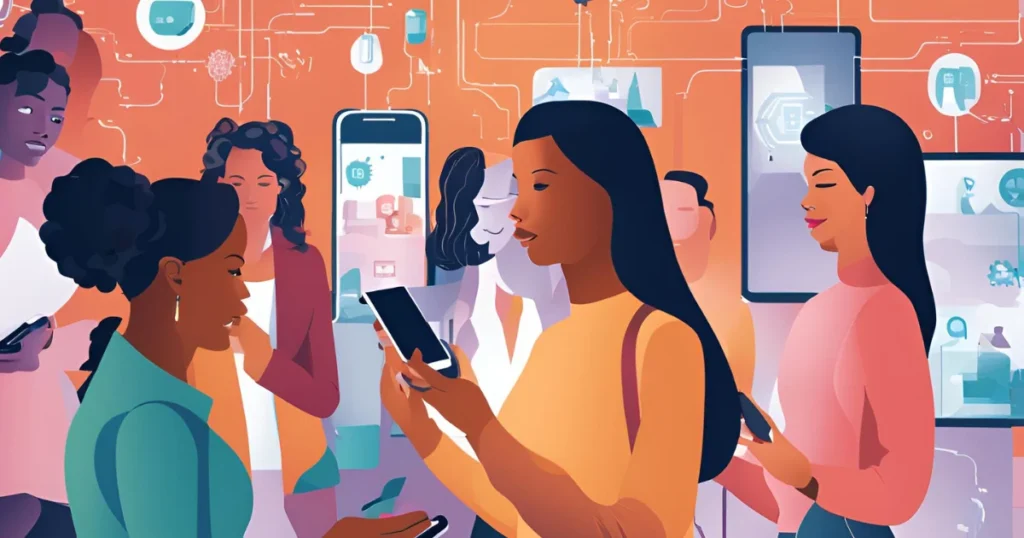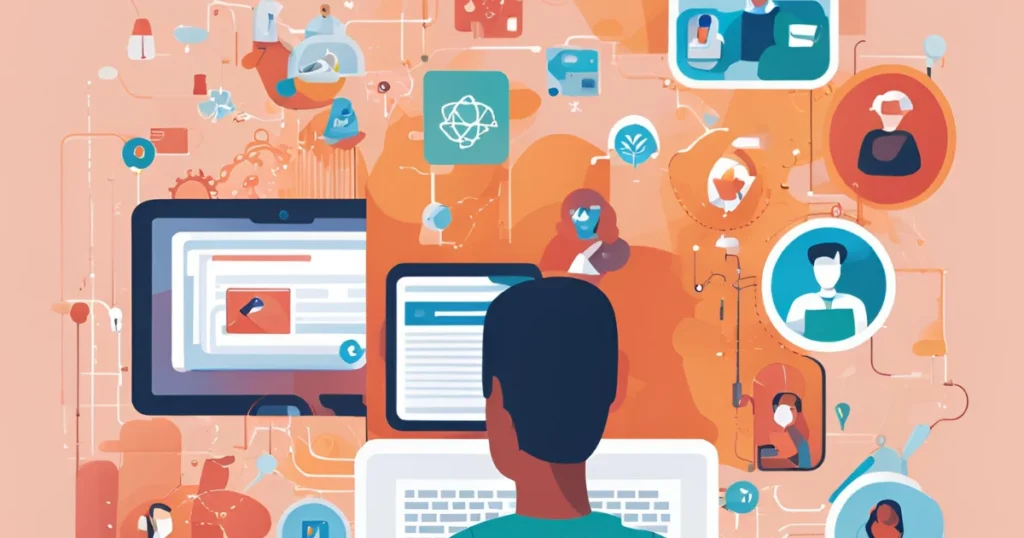The rise of artificial intelligence sparks mixed emotions, from excitement and optimism about innovation to fear and uncertainty about job loss, ethical concerns, and the future of humanity.

In this article, we’ll dive into the emotional spectrum surrounding A.I.’s rise, examining what excites and scares us as we navigate this technological revolution together.
What is Artificial Intelligence? (A Brief Overview)
Artificial Intelligence (A.I.) refers to developing computer systems that can perform tasks typically requiring human intelligence, such as learning, problem-solving, and decision-making.
The concept of A.I. isn’t new—its roots can be traced back to the 1950s when computer scientists began imagining machines that could mimic human thinking.
Today, AI is divided into Narrow A.I., like virtual assistants (think Siri and Alexa), which are task-specific, and General AI, which aims to replicate the full range of human cognitive abilities (though this is still a futuristic goal).
The Positive Outlook on the Rise of A.I.
Artificial Intelligence is accelerating innovation, creating economic opportunities, and improving quality of life. Many experts see A.I. as a tool for human enhancement rather than replacement.
- Economic Opportunities: A.I. drives job creation in data science, robotics, and automation technologies. While specific jobs may be automated, new career paths in A.I. ethics, development, and oversight are emerging.
- Efficiency and Innovation: A.I.’s ability to analyze massive datasets quickly is leading to breakthroughs in industries like healthcare (A.I. algorithms detect diseases early), transportation (autonomous vehicles), and education (personalized learning systems).
- A.I. in Everyday Life: From AI-powered smart home devices to recommendation engines that know what we want before we do, A.I. is enhancing convenience and personalization, making our lives easier.
Case Study: In healthcare, AI-driven diagnostics tools have improved the accuracy of detecting diseases such as cancer, leading to earlier treatments and better patient outcomes.
Concerns and Fears Around A.I.
While A.I. holds promise, concerns around job displacement, privacy issues, and ethical dilemmas are growing.
- Job Displacement: Automating repetitive tasks threatens jobs, particularly in sectors like manufacturing, retail, and customer service. However, while employment in these sectors might decrease, there is an increasing demand for high-skilled workers who can manage, oversee, and improve A.I. systems.
- Ethical Dilemmas: A.I. systems have faced criticism for algorithmic bias—reinforcing societal inequalities in criminal justice, hiring, and loan approvals. The lack of transparency in A.I. decision-making, or “black box A.I.,” poses significant risks.
- Fear of Superintelligence: Some fear A.I. may outgrow human control, potentially leading to a future where machines are more intelligent and capable than humans—a concept known as singularity. Though this is still largely speculative, it raises questions about control and responsibility.
- Security Threats: As A.I. becomes more integrated into critical infrastructure, the risk of it being used maliciously, such as in cyberattacks or to create deepfakes, is a growing concern.

Emotional Impact of A.I. on Individuals and Society
The emotional response to A.I. ranges from excitement and optimism to anxiety and uncertainty, often driven by how A.I. affects individuals’ sense of control and security.
- Excitement vs. Anxiety: On one hand, there’s excitement about the possibilities A.I. presents—better healthcare, safer roads, and more innovative homes. On the other, anxiety about job loss, privacy violations, and the unpredictability of future A.I. capabilities weigh heavily on the public’s mind.
- Generational Perspectives: Younger generations tend to view A.I. more positively, seeing it as an opportunity for innovation and lifestyle improvements. Older generations, however, may view A.I. with more skepticism, concerned about its impact on job markets and privacy.
- Public Sentiment: Surveys show that public opinion on A.I. is split. For example, a Pew Research Center study revealed that while many are excited about A.I.’s A.I.’s potential, nearly 50% of people are worried about its long-term impact on society.

Ethical A.I.: Building a Positive Future
Developing A.I. responsibly is crucial to ensure it serves humanity’s best interests and minimizes harm.
- Responsible A.I. Development: Governments, corporations, and developers increasingly focus on making A.I. more transparent and accountable. Initiatives like A.I. ethics committees and frameworks for algorithmic transparency and fairness are helping guide responsible A.I. development.
- Human-Centered A.I.: The future of A.I. should be one where machines enhance human decision-making rather than replace it. Ensuring that A.I. remains a tool to augment human capacity rather than undermine it is critical to creating an ethical A.I. future.
- A.I. for Social Good: Inspiring projects are leveraging A.I. for social good. For example, A.I. models predict and address climate change, optimize supply chains to reduce food waste, and provide medical assistance in underserved communities.

Expert Opinions: What Thought Leaders Are Saying
Experts in A.I. are divided—some see a bright future filled with opportunity, while others warn of significant risks.
- Optimists like Andrew Ng believe A.I. will revolutionize industries and drive economic growth, much like previous technological advances. In his words, “A.I. is the new electricity.”
- Skeptics like Elon Musk caution that unregulated A.I. could lead to unforeseen consequences, comparing it to “summoning the demon.”
- A.I. Ethics Thought Leaders such as Timnit Gebru emphasize the need for fairness and ethical guidelines, especially in how A.I. is deployed in decision-making processes.

How to Stay Informed and Adapt to the A.I. Future
Staying informed and proactive about A.I. can help you navigate the evolving landscape of artificial intelligence and future-proof your career and life.
- Learning A.I. Skills: Platforms like Coursera, Udemy, and Kaggle offer accessible A.I. and machine learning courses. Understanding A.I.’s basics can help you stay competitive in a rapidly evolving job market.
- Adaptation Strategies for Businesses: Organizations should focus on reskilling their workforce to prepare for AI-driven roles while leveraging A.I. for efficiency gains in operations, customer service, and more.
- A.I. Tools to Explore: A.I. is becoming increasingly accessible. Tools like ChatGPT, DALL·E, and Grammarly give everyday users the power to enhance creativity, productivity, and communication.

Conclusion
The rise of A.I. evokes mixed emotions, but one thing is clear: it’s here to stay. Whether you’re excited about its potential or worried about its risks, A.I. shapes the future. By staying informed, embracing innovation, and advocating for responsible A.I. development, we can ensure that A.I. serves humanity’s best interests.
Let us know how you feel about A.I. Share your thoughts in the comments below!
F.A.Q.
Will AI take my job?
A.I. might automate specific jobs, but it will also create new opportunities, particularly in tech-driven fields.
Is A.I. safe?
As with any technology, A.I.’s safety depends on how it’s developed and deployed. Ongoing work in A.I. ethics aims to ensure that A.I. is safe and fair.
How can I start learning about A.I.?
You can begin learning A.I. by taking online courses on platforms like Coursera, Udacity, or EdX—many of which offer free introductory classes.





